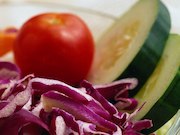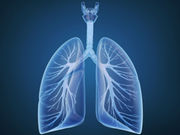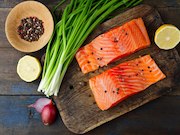Tag: Food & Nutrition: Misc.
Better Dietary Patterns Among U.S. Adults Could Save Billions
Cost savings of $25.7B and $38.1B based on 20 percent increase in adherence to MED, HEI-2015
Research Reveals Unfavorable Beliefs About Frozen Vegetables
Using implicit and explicit measures, researchers find negative bias toward frozen versus fresh vegetables
CDC Says E. Coli Outbreak Tied to Romaine Lettuce Is Over
197 cases of illness linked to the E. coli outbreak, five of which were fatal
Does Higher Protein Intake Up Heart Failure Risk in Men?
Trend toward increased heart failure risk seen with higher intake of animal, plant, total protein
Higher Seafood Intake May Shorten Time to Pregnancy
More than eight servings per cycle also tied to higher frequency of intercourse
Non-Nutritive Sweeteners Don’t Up Blood Glucose Levels
Concentration of NNSs decreases gradually over the course of observation after consumption
Daily Egg Consumption Linked to Reduced CVD Risk
Reduced risk seen for ischemic heart disease, major coronary events, stroke in Chinese adults
Slower Decline in Lung Function With Anthocyanin Intake
Slower annual rates of decline in FEV1 and FVC for those in highest quartile of anthocyanin intake
Healthful Diet Linked to Reduced Risk of Hearing Loss in Women
Inverse association between AMED, DASH, AHEI-2010 diet scores with risk of hearing loss for women
Seafood Recommended 1 to 2 Times/Week for Cardiac Benefit
Benefits of seafood consumption include reduced risk of cardiac death, coronary heart disease, stroke














